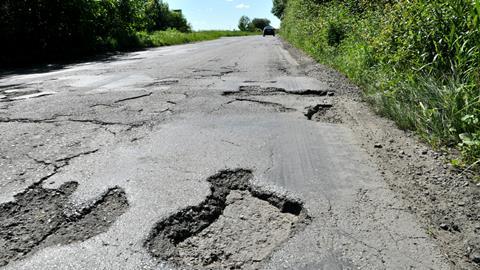The majority of local authorities across England have now published plans showing which roads will receive pothole repair maintenance, after the government handed them reallocated HS2 funding.
The department for transport (DfT) said that as a condition of giving councils the first tranche of £8.3bn to resurface their roads, they were required to set out a two-year plan detailing exactly which local roads would benefit.
It said this was to ensure the money was being spent by councils on pothole repairs. They have already received £150m to get on with the work and another £150m will be paid out to them in this financial year.
The DfT said 102 out of 119 authorities (86%) had responded to the request and businesses and the public could now check their local council website and scrutinise the plans for themselves.
The DfT added that local authorities that had failed to publish reports could see the withdrawal of future funding to resurface roads.
Among the regions pledging to resurface the highest volume of roads are the West Midlands (600,000 square metres) and East Midlands (350,000 square metres), with plans outlined for problem spots across the country including the: A43 at Towcester; A164 between Beverley and Hessle in East Yorkshire and the A4146 at Leighton Buzzard.
Transport Secretary Mark Harper said: “Alongside this unprecedented funding, which is already being used to improve local roads, we’re making sure local people can hold their local authority to account and see for themselves how the investment will be spent to improve local roads for years to come.”
Jonathan Walker, Logistics UK’s head of cities and infrastructure policy, said the allocation of previously announced funding was welcome news for hauliers, but he added: “However, to support the nation’s supply chain and ensure that deliveries can continue to be made on time, it is vital that government provides a longer-term strategy and funding model to reinforce the UK’s transport infrastructure.
“This would enable long-term maintenance programmes to be put in place, rather than piecemeal allocations of funding that create a stop-start mentality and interruptions to the transport network.”














